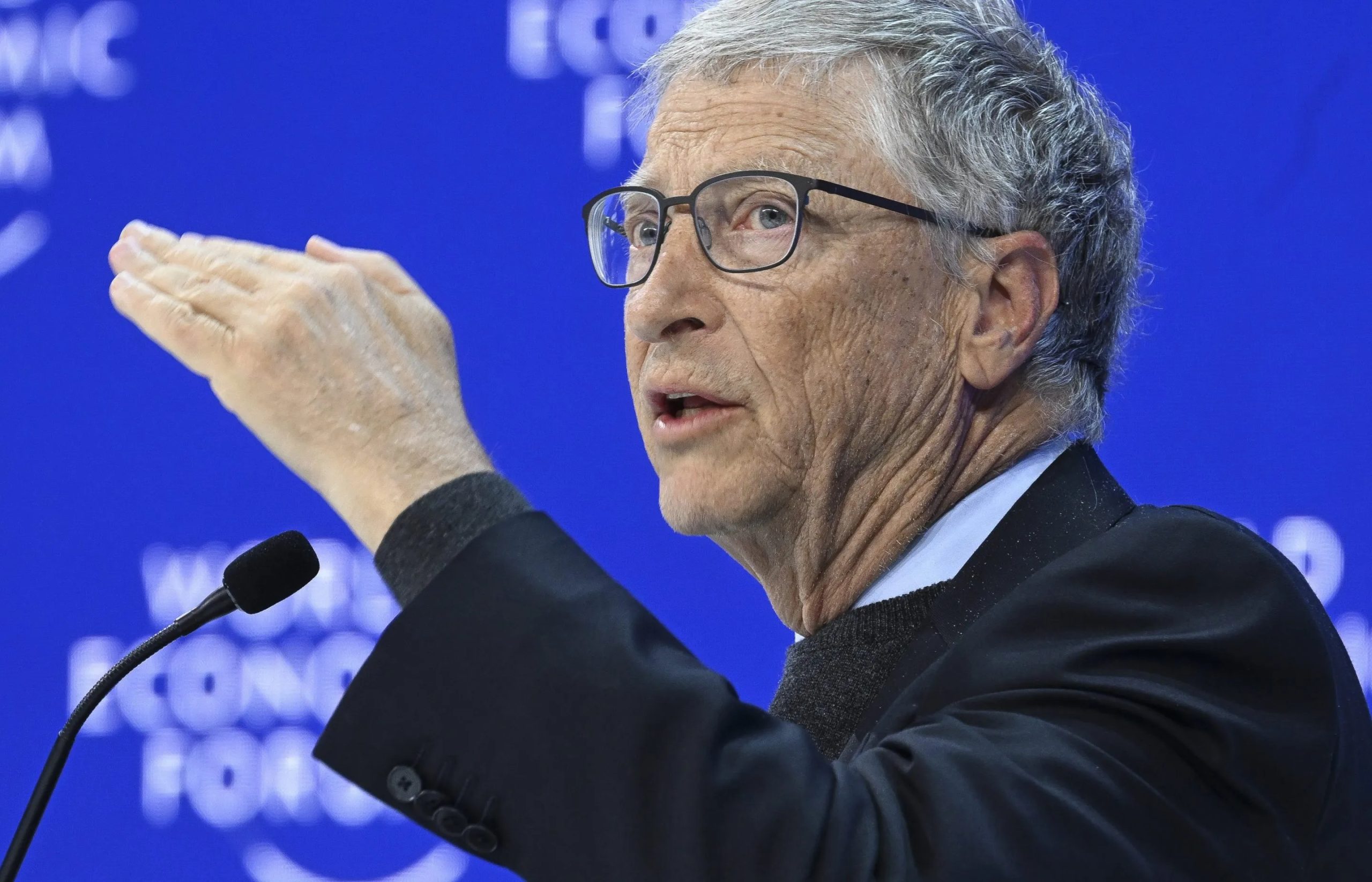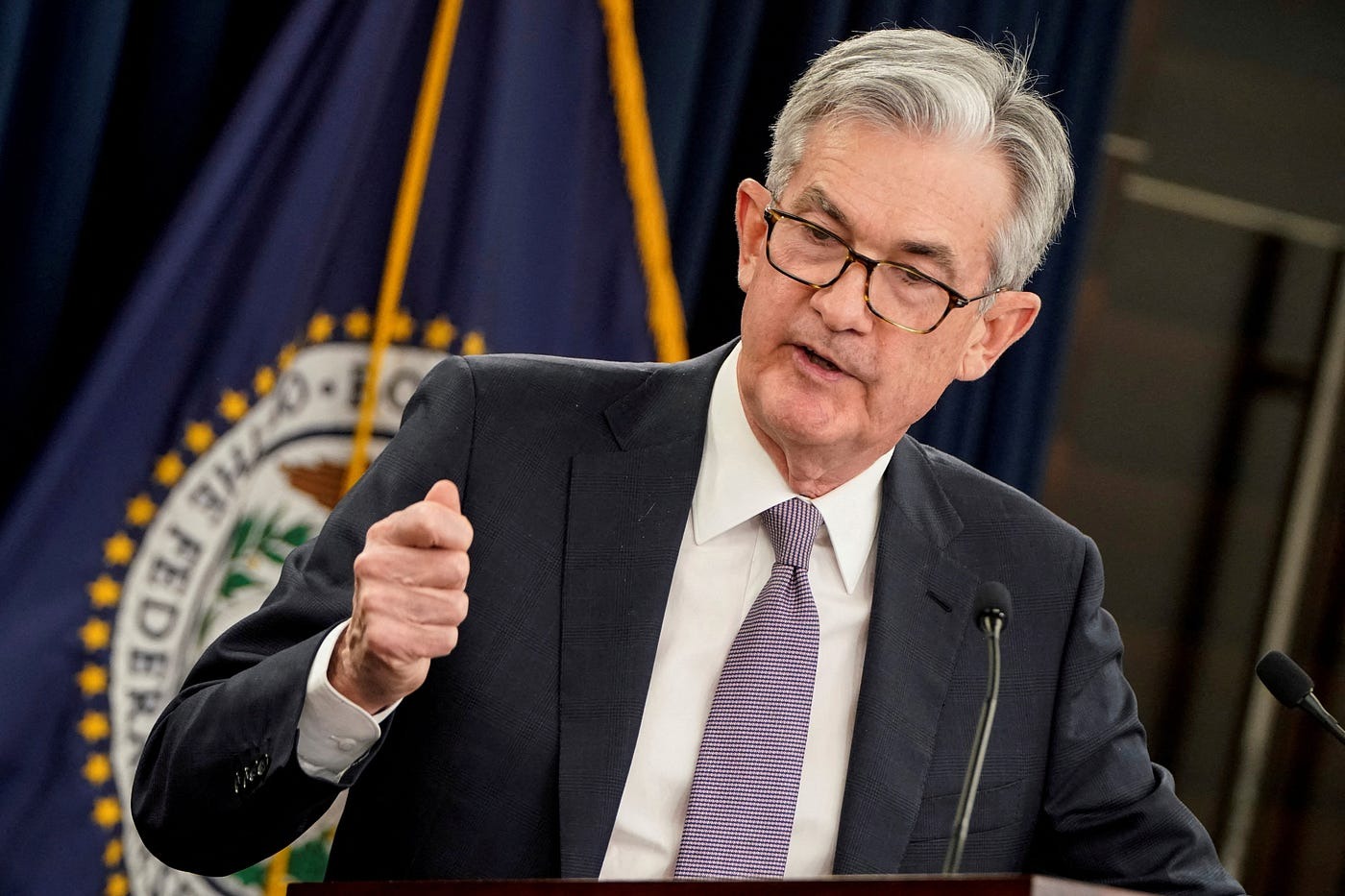Federal Reserve Chairman Jerome Powell unexpectedly addressed the United States’ mounting national debt during a recent interview on CBS’ 60 Minutes.
With the national debt rapidly approaching $34.2 trillion, key figures in the finance world have been vocal about the situation, but Powell’s comments brought a new perspective.
Powell, who typically avoids direct commentary on fiscal matters, expressed concerns about the nation’s fiscal trajectory. On the long-term horizon, he emphasized that the U.S. is treading an unsustainable fiscal path.

Jamie Dimon talking about a market ‘rebellion’ (Credits: Fortune)
This unexpected intervention by Powell comes at a time when the U.S. managed to evade the predicted recession in 2023. Despite the positive economic outlook, the combination of unprecedented government spending and reduced tax receipts has propelled the national debt to an unprecedented level.
The U.S. government’s debt-to-GDP ratio, a crucial indicator measuring total public debt relative to economic growth, has undergone a significant shift. It escalated from just above 100% in 2019 to a current level exceeding 120%.
Although this is a reduction from the peak during the COVID-19 pandemic, when the ratio reached 133%, Powell stressed that the government’s debt is still expanding at a faster pace than the overall economy.
The economic landscape has been marked by resilient growth, steering away from the anticipated downturn. However, the persistent surge in government spending and the resultant increase in the national debt remain alarming.
Powell’s acknowledgment of the unsustainable fiscal path indicates a growing awareness of the potential risks associated with the current trajectory.
The interview shed light on the intricacies of the economic challenges the U.S. is navigating. Powell’s remarks suggest that, despite economic resilience, the fundamental fiscal imbalance poses a looming threat.
The concern isn’t merely about avoiding an immediate recession but addressing the structural issues that contribute to the growing disparity between government debt and economic expansion.
As Powell stepped into the conversation around the national debt, it sparked renewed discussions about the need for strategic fiscal policies.
The record-breaking levels of government spending, combined with the ongoing accumulation of debt, highlight the urgency of reassessing financial strategies. Powell’s unexpected commentary serves as a wake-up call, urging policymakers to delve into comprehensive solutions that address the root causes of the fiscal challenges.
While the interview on 60 Minutes offered a glimpse into Powell’s perspective, it also raised questions about the potential policy shifts needed to rectify the unsustainable fiscal path.
The chairman’s acknowledgment underscores the importance of proactive measures to stabilize the nation’s financial footing, ensuring a sustainable economic future. The conversation initiated by Powell’s remarks serves as a crucial starting point for evaluating and reshaping fiscal policies to foster long-term economic stability.























